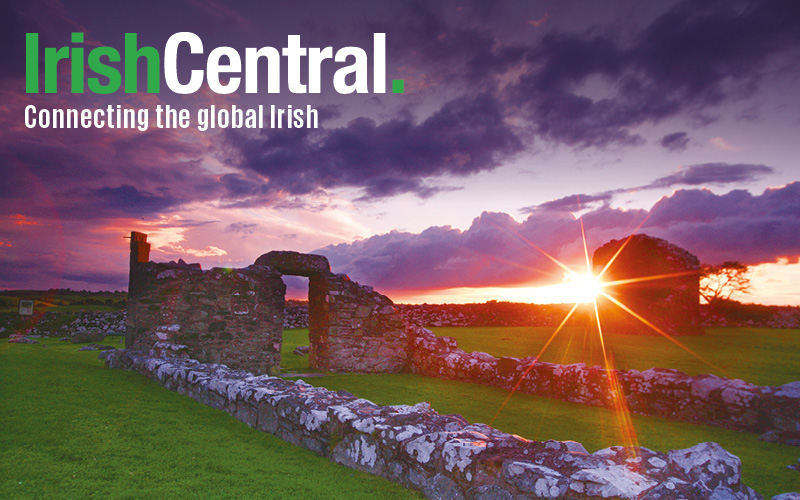An agreement signed yesterday by the Irish government and the US State Department represents a small victory and stop-gap against one of the policy measures proposed by President-elect Donald Trump.
The 12-month Ireland Work and Travel Program, which enables Irish and US citizens between the ages of 18 and 35 who have graduated from second-level or third-level education to work and travel in each other’s respective countries, is safe for three more years.
Ireland’s Ambassador to the US, Anne Anderson, and Evan Ryan, Assistant Secretary of the Bureau of Educational and Cultural Affairs, met in Washington to sign a memorandum of understanding between the two countries.
Exciting day for #USIreland relationship; we've extended our Memorandum of Understanding for the Ireland Work & Travel #J-1Visa Program. pic.twitter.com/hpStina5PB
— Evan Ryan (@ECA_AS) December 6, 2016
Since it was implemented in 2008, the visa program has been renewed every two years for two years, but yesterday’s agreement marked the first time it has been extended for three years.
This is thought to be in response to a campaign promise that appeared on Donald Trump’s campaign website in 2015 (and since deleted), which stated, "The J-1 visa jobs program for foreign youth will be terminated and replaced with a résumé bank for inner city youth provided to all corporate subscribers to the J-1 visa program."
Read more: Trump set to end J-1 visas for Irish students
In 2015, 1,319 Irish people availed of the 12-month J-1 visa, and approximately 300 Americans availed of the reciprocal arrangement, traveling to Ireland.
Speaking at the signing, Ambassador Anderson praised the opportunities the J-1 graduate visa offers young Irish adults.
“Over so many years, the J-1 Programs – including both the summer program and the 12 month program - have made a contribution which is hard to overstate. When our young people spend time in each other’s countries, at a formative period in their lives, the experience stays with them long into the future.
“Time and again, throughout my years here as Ambassador, I have heard from Irish political leaders, and decision-makers in every walk of life, about their J-1 experience in the US and the positive imprint it has left on them. The comments are almost always along the same lines: the experience has challenged them, helped them grow, left them with an enduring sense of warmth about this country. It is not that they will always necessarily agree with every aspect of American policy, but they will have a context in which to make an assessment, and a level of understanding they would not otherwise have.”
Assistant Secretary Ryan also brought up the benefits of the program, namely that “The J-1 Exchange Visitor Program provides opportunities for approximately 300,000 exchange visitors per year to experience the United States, its society and culture, and to engage with Americans in all 50 U.S. states and the District of Columbia.
Read more: Why Donald Trump is wrong to get rid of Irish J-1 visas in his immigration polict
“Ireland plays a vital part in these exchanges, as one of the top sending countries for all J-1 programs. In 2015, more than 10,000 Irish exchange visitors came to the United States,” said Ryan, counting the students who traveled to the US on summer-long J-1 visas in her total.
Ambassador Anderson also spoke to the J-1 Summer program visa, which allows Irish college students to work in the US for four months at a time, typically during the summer break from school, and which the memorandum of understanding does not pertain to.
For 2016, restrictions for the summer J-1 visa increased, stipulating, for the first time, that applicants must have an employment opportunity lined up before they travel to the US. This brought numbers way down – from 7,000 in 2015 to 4, 200 this year.
Anderson defended the program as an important opportunity for all parties involved. “The J-1 Summer Program for fifty years has been a cherished rite of passage for so many young Irish people, and there can be few better examples of public diplomacy in action. The program attracts some of our best and brightest – before they leave, we remind them that they are ambassadors for Ireland; after they return, we see them develop a dual mandate: as well as being the face of Ireland in America, they help communicate America to Ireland.”
The Irish Ambassador also alluded to the new challenges ahead in a Trump presidency.
Read more: J-1 Visa program in peril, says Irish leader
“We are on the threshold of a new Administration taking office in the United States, and we can anticipate that there will be a strong focus on immigration issues. As part of that debate, there is likely to be some consideration of exchange program and the role they play. Ireland will of course be making its case on the wider issues of immigration reform, but we will also be happy to share our tremendously positive experience of J-1 program.
“And our central message will be this: these J-1 programs are not just an act of generosity towards young people, although they certainly offer life changing experiences and opportunities. But they are about so much more than that – conferring mutual benefit, projecting soft power, and building enduring relationships.”
Did you or do you know anyone who spent time in the US or Ireland thanks to the J-1 visa? Share your thoughts and experiences in the comment section.




Comments